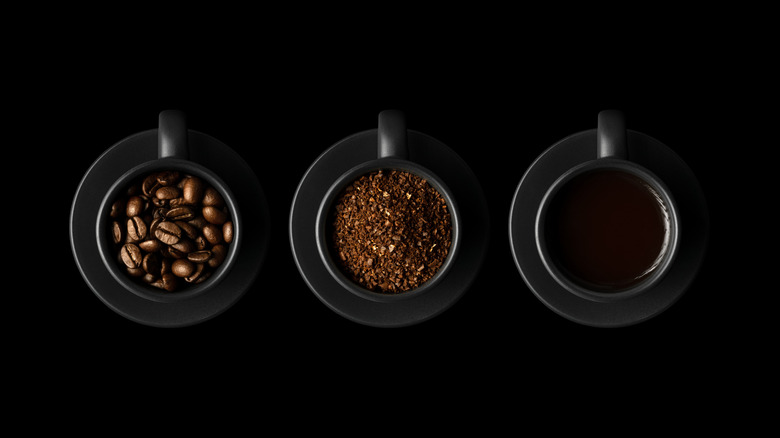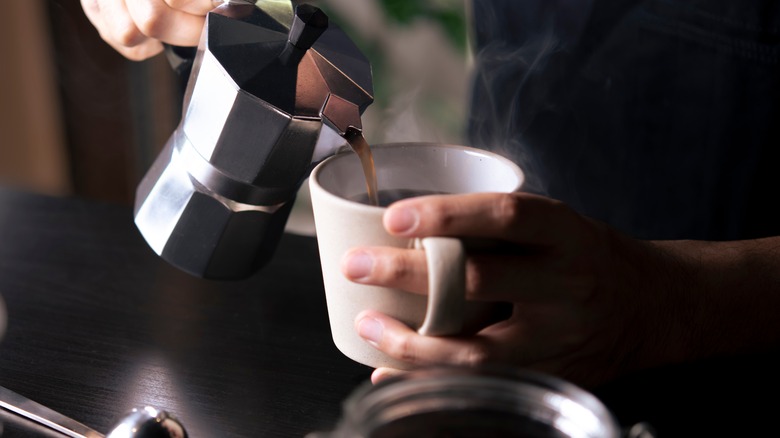When It Comes To Caffeine, Not All Coffee Is Created Equal
Taking that first sip of coffee is oftentimes the highlight of the morning. Whether you take your java black, prefer to add cream, sugar, or flavoring, drink it piping hot out of your favorite mug, or pour it over ice in a cup, coffee is a versatile and totally customizable beverage with some incredible health benefits. One of the main reasons millions of people around the world consume coffee is to kick start their day with a burst of energy — or to feel that necessary extra buzz to weather a mid-afternoon slump. This awakening sensation is mainly due to caffeine, a natural cognitive stimulant commonly found in various foods.
Daily coffee drinkers — 62% of Americans — are serious about getting their caffeine fix and the average consumer downs more than three cups per day, according to the National Coffee Association. But just how much of an impact does caffeine actually make to people's orders? More importantly, are customers able to detect a discernible enough contrast from place to place? To make a long story short, not all coffees are crafted the same way, thereby providing different intensities of the perk-up chemical. Here's why.
Different coffees have varying caffeine levels
Coffee is an extremely unique beverage, with a vast range of flavor profiles, aromas, bodies, acidities, and of course, caffeine levels. The caffeine level in coffee generally depends on a number of key factors, including the type of coffee (e.g., espresso, brewed, or decaf), the variety and origin of the beans, the roast style (e.g., light, medium, or dark), and the serving size consumed, according to Healthline. For example, light roasts are typically slightly more caffeinated than darker roasts, and instant coffee usually contains less caffeine than regular brewed coffee.
How do the big shops stack up? Spoon University and Caffeine Informer joined forces to conduct a study among some of the world's most popular coffee chains, including McDonald's, Dunkin', Starbucks, and Tim Horton's. As it turns out, and perhaps not too surprisingly, every brand roasts its coffee a bit differently. In other words, you won't consume the same amount of caffeine if you drink a medium McDonald's McCafé brewed coffee (145 mg) versus if you knock back a grande from Starbucks (330 mg).

